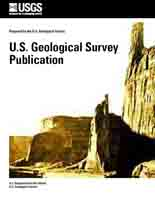Military activity at Graces Quarters, a former open-air chemical-agent facility at Aberdeen Proving Ground, Maryland, has resulted in ground-water contamination by chlorinated hydrocarbons. As part of a ground-water remediation feasibility study, a three-dimensional model was constructed to simulate transport of four chlorinated hydrocarbons (1,1,2,2-tetrachloroethane, trichloroethene, carbon tetrachloride, and chloroform) that are components of a contaminant plume in the surficial and middle aquifers underlying the east-central part of Graces Quarters. The model was calibrated to steady-state hydraulic head at 58 observation wells and to the concentration of 1,1,2,2-tetrachloroethane in 58 observation wells and 101direct-push probe samples from the mid-1990s. Simulations using the same basic model with minor adjustments were then run for each of the other plume constituents. The error statistics between the simulated and measured concentrations of each of the constituents compared favorably to the error statisticst,1,2,2-tetrachloroethane calibration. Model simulations were used in conjunction with contaminant concentration data to examine the sources and degradation of the plume constituents. It was determined from this that mixed contaminant sources with no ambient degradation was the best approach for simulating multi-species solute transport at the site. Forward simulations were run to show potential solute transport 30 years and 100 years into the future with and without source removal. Although forward simulations are subject to uncertainty, they can be useful for illustrating various aspects of the conceptual model and its implementation. The forward simulation with no source removal indicates that contaminants would spread throughout various parts of the surficial and middle aquifers, with the100-year simulation showing potential discharge areas in either the marshes at the end of the Graces Quarters peninsula or just offshore in the estuaries. The simulation with source removal indicates that if the modeling assumptions are reasonable and ground-water cleanup within30 years is important, source removal alone is not a sufficient remedy, and cleanup might not even occur within 100 years.


